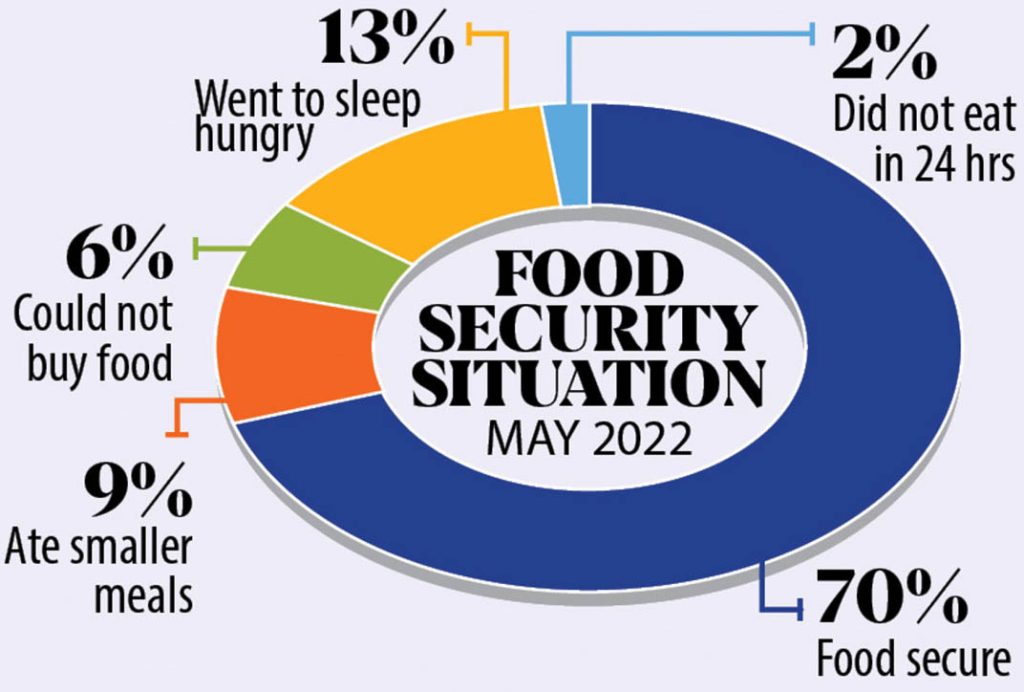World Bank survey on Bangladesh’s Covid effect
News Desk : dhakamirror.com
A World Bank report finds 30 percent of Bangladeshis are enduring food scarcity despite the country’s economic recovery from pandemic-induced disruptions.
The percentage of persons who went to sleep hungry virtually doubled from 7 percent in June last year to 13 percent in May this year.
WB Senior Economist Ayago Wambile presented the survey’s keynote paper at a seminar yesterday in Dhaka. The seminar was organised by Bangladesh Institute of Development Studies (BIDS).
6 percent of May survey respondents stated they couldn’t buy food. Last June, it was 5 percent. In May this year, 2% of people hadn’t eaten in 24 hours, up from 1% in June last year.
However, the number of people eating smaller meals has decreased significantly in the last one year. It plummeted to 9% in May this year, down from 17% in June last year.
Ayago Wambile, the keynote speaker, said price increases hinder food security.
Food instability has increased the vulnerability of food-insecure regions, including poor countries.
70% of Bangladesh’s population’s food security hasn’t altered since June 2021, according to the WB survey.
Sailesh Tiwari, a senior economist at the WB, said, “The country’s economy has seen a V-shaped rebound in the last two years since the onset of Covid epidemic, but the recovery was uneven as individuals from all levels failed to reap the consequence of such recovery.”
A V-shaped recovery is a swift and sharp revival in an economy after a steep collapse.
The “Tracking Impact of Covid-19 in Bangladesh: High Frequency Phone Survey” survey was conducted ten times between June 2020 and May 2022. It was carried out on a national scale as well as in Dhaka, Chattogram and Cox’s Bazar’s urban and slum areas. The sample size varied between 1,300 and 7,700 persons.
According to the survey, 31 percent of people were unable to obtain Tk 25,000 in cash in an emergency since the outbreak began in June 2020. In May of this year, the figure plummeted to 4%.
BIDS Director General Binayak Sen said a large part of population have trouble accessing emergency funds in times of crisis.
In wealthy countries, the state provides cash aid for people, Binayak said at a conference titled “Socio-Economic Impacts and Policy Responses to Covid-19 Pandemic in Bangladesh: Lessons for the Future.”
He stated the lockdowns hurt the country’s economy. It recovered gradually, but not everyone benefited.
In his presentation, Wambile estimated 55% of slum dwellers couldn’t pay rent in June 2020, but only 25% in May this year.
The study found that 22% of slum dwellers feared eviction in June 2020. The number dipped to 14% in May this year.
Wambile urged Bangladesh to prepare for natural calamities, and economic and health related shocks.
He mentioned that the country’s vulnerability to economic shocks has increased, and he suggested that the government extend and reinforce the social safety net for the poor.





















